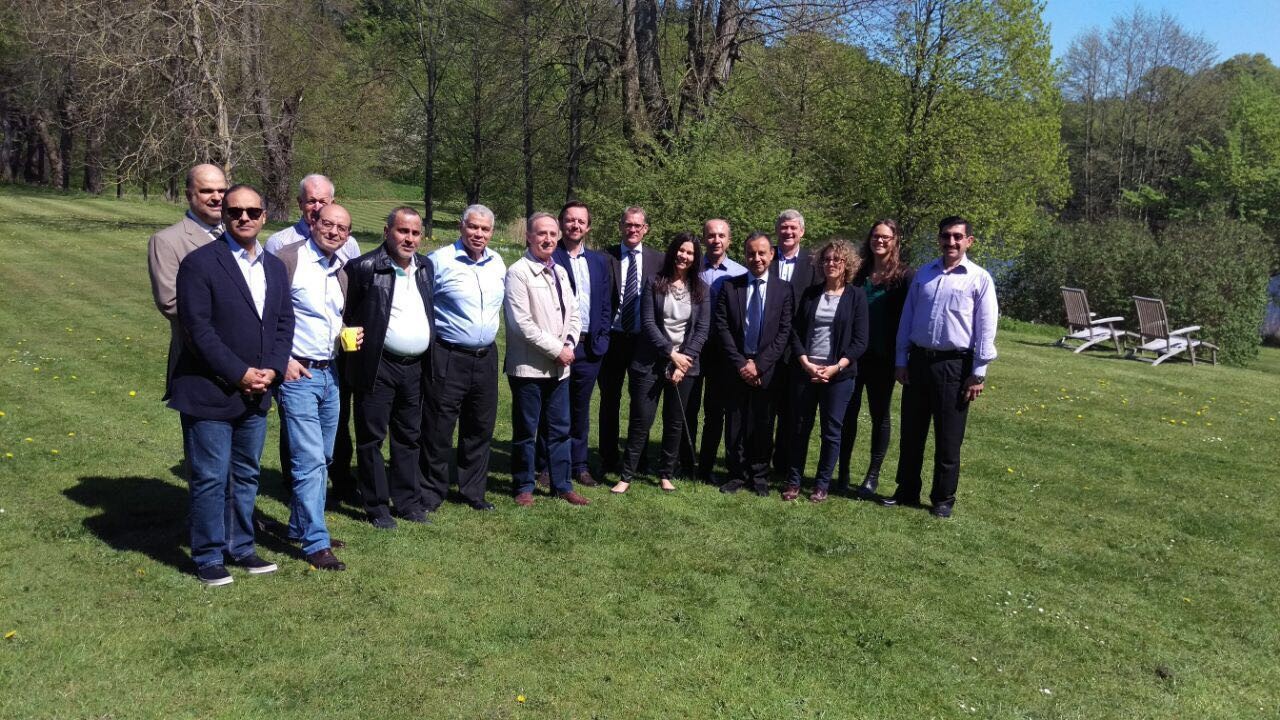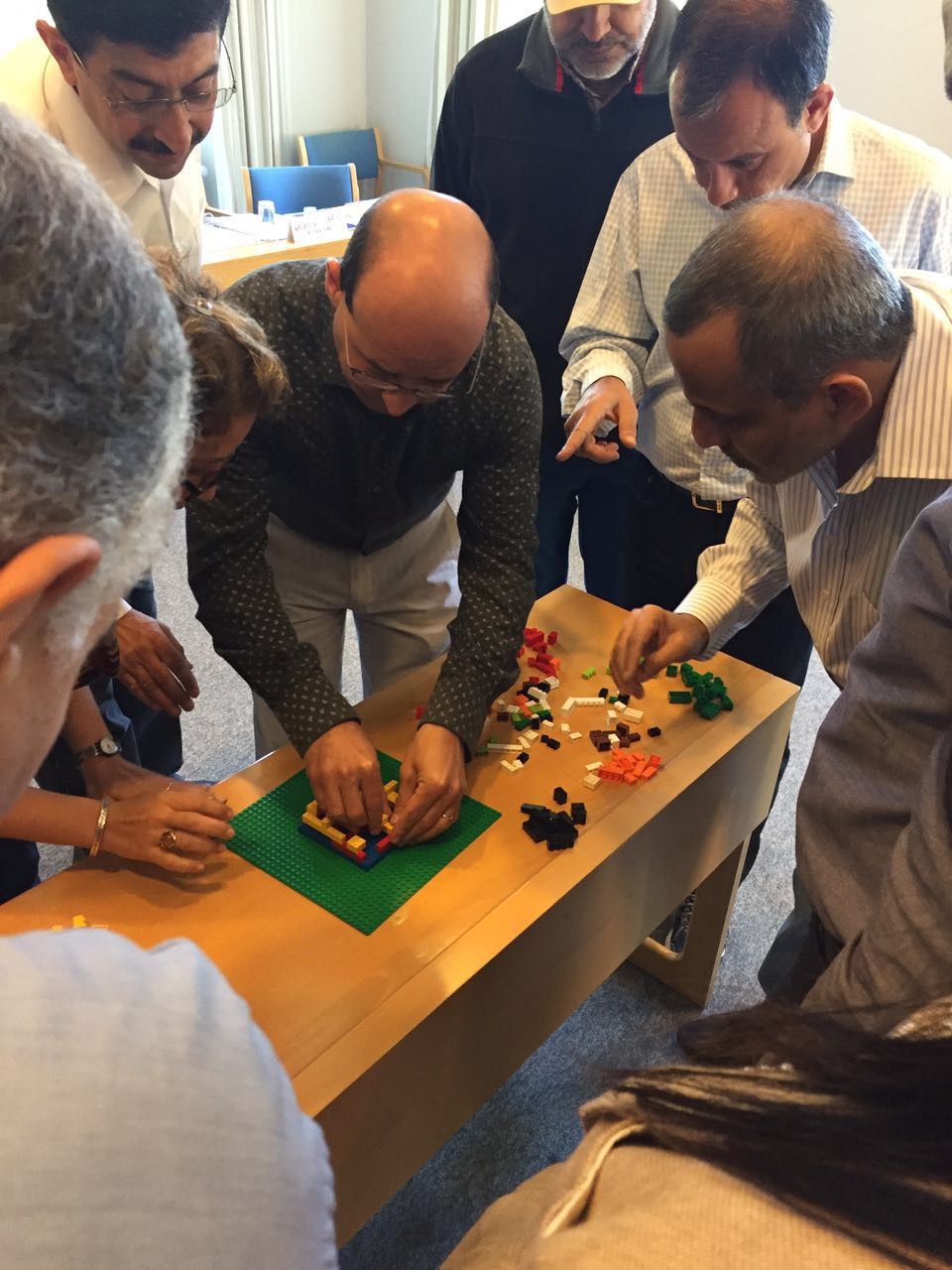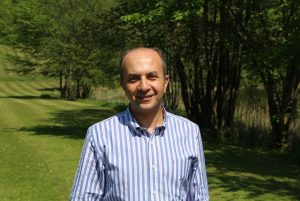
The Executive Training Program in Denmark engaged Arabic Leaders with the ’Danish model’ where keywords such as trust, motivation, empowerment, and individual freedom were on the agenda.
By Mette Grangaard Lund
The quiet, countryside castle Skjoldenæsholm from the 14th century located between light green trees and the rolling hills of yellow cornfields is a stark contrast to the busy and bustling metropoles of Cairo, Beirut or Riyadh. Nonetheless, this was the destination for reflection and learning where executives from business organizations from nine different countries in the Middle East and North Africa (MENA) region participated in the Executive Training Program from 9th-13th of May 2016.
The executives were here to acquire knowledge about the ‘Nordic model’ to management, as well as to learn from each other. The Executive Training Program hosted by the Confederation of Danish Industry (DI) presented tools and frameworks on effective collaboration between boards and secretariats, employee motivation and engagement, power management, and political strategy.
The executive training is part of DIs engagement in the MENA region. For the past 10 years DI have been building relations and sharing knowledge on organizational change and development, business environment reform and facilitating stronger commercial ties between the Danish private sector and the private sector in the MENA region. This was emphasized by Deputy Director Niels Tanderup Krtistensen, DI, who in his welcoming remarks to the training underlined that:
Our cooperation with partner organisations in the MENA region is a win-win for all parties. Our cooperation may take the form of specific training courses, strategy and service manual development, alliances, member services, or analysis and knowledge sharing on political and economic developments. But in the end it is all about building the trust and the relations and promoting strong organisations with a common voice to advocate for a healthy business environment that enhances investments, stimulate entrepreneurship, and support economic growth and development.”

The program was a creative mix of lectures, groups work, class discussions and practical exercises. The picture portrays one such exercise, where the participants were challenged to build a structure with LEGO in silence, with different and secret instructions.
Power to the employees!
The topics of the week were carefully chosen by DI and the department from Leadership Development and Productivity to meet the needs and challenges which Executives across the MENA region faces.
In particular, it was the program’s topics and the prospect of learning from both DI and other executives that got Eng. Ahmed Kamal Abdel Monem, Executive Director of the ECO-SD unit in the Federation of Egyptian Industries, to come to Denmark:
We have a lot to learn from DI, as we see a lot of similarities between DI and the Federation of Egyptian Industries in the way that both organizations are representing members. We are also working as an intermediary between our members, the government, unions, and different authorities. We want to learn more about how to manage not only our members, but also our employees.”
One concrete take-away for the participants, was a new approach to managing and motivating employees in a region with high power distance and expectation of hierarchies in management structures. There is a great difference between delegating responsibility to employees and empowering them. This was pointed out several times by the course responsible, Senior Advisor Jan Vinther, especially how CEOs should avoid becoming the bottleneck and rather empower their employees to facilitate a more effective and successful organization.
Managing a demanding Board of Directors
Fadel Agoumi, Director of CGEM, from Morocco, agrees that there is much to learn from both the instructors and the other participants. To Fadel Agoumi the topics were particularly interesting as it helps him to address some of the challenges he faces in his position with stabilizing the relationship to the board. Fadel Agoumi says:
There is a delicate balance between the board and the secretariat. The board always have the temptation to initiate many things but you are, as the manager, the one who has to manage the staff and make them work, the one who is accountable for the results. So there is always a conflict of power between the players in this structure.”
To Ahmed Kamal, from Egypt balancing power is also a constant challenge. “We face many challenges in our organization in terms of members, as we represent 60,000 companies,” he said. “Also in terms of conflicts between members. How to manage such conflicts and keep both parties as members of your organization has been one of the very important and interesting topics over the past days.”
Despite the different country codes, each of issue tackled in the training program was prevalent in the work for all 12 participating executives. The quality and commitment by the instructors was high and the content useful. Fadel Agoumi says: “We had a very interesting session with Susanne Andersen [red. Director of DI member associations secretariat] on the effective division of responsibilities and tasks between the board and managers. We felt like she was dealing with the same issues as us! She pinpointed some interesting cases, which led to a great debate. We are living through the same problems.” Just like Ahmed Kamal, Fadel Agoumi found that despite cultural differences across the MENA region the participants had a lot to learn from each other.

We have a lot to learn from DI, as we see a lot of similarities between DI and the Federation of Egyptian Industries”
About the Executive Training Program in Denmark
– Ahmed Kamal,
Director of ECO SD, Egypt
Valuable connections across the region – also in the future
As it turns out, the green and lush environment has not only brought new professional insights but also personal ones: “I never had a chance to meet Saudis or Algerian people. I had a cliché image of them but I was surprised by their openness, so it’s a good experience”, Fadel Agoumi says.
Ahmed Kamal agrees, and adds that that the interaction between the participants that come from different Arab countries truly is a bonus. He points out how this is a value added to the training: “It is enhancing the interaction between Arab countries!” The leaders have already established an interactive platform to keep in touch after the course and continue to share their experiences. The Executive Training program thereby proves that clean air and a fresh new perspective can not only bring Nordic Management in the new context of Arab countries, but also the Arab countries closer together.
Download the program here: Final Executive Training Program
Mette Grangaard Lund is an Analyst at DI.
The Danish-Arab Partnership Programme (DAPP) is Denmark’s collaboration project with the Middle East and North Africa (MENA) focusing on reform and democratization. The program strengthens dialogue, partnerships and mutual understanding between Denmark and the MENA region.
The Confederation of Danish Industry is one of the strategic partners for DAPP and continuously assist in the capacity building across the regions, as well as hosting events such as this one in Denmark and others in the region of MENA.
